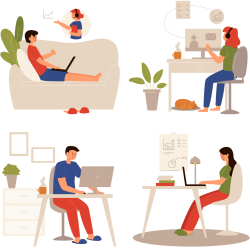To provide the best experiences, we use technologies like cookies to store and/or access device information. Consenting to these technologies will allow us to process data such as browsing behaviour or unique IDs on this site. Not consenting or withdrawing consent, may adversely affect certain features and functions.
The technical storage or access is strictly necessary for the legitimate purpose of enabling the use of a specific service explicitly requested by the subscriber or user, or for the sole purpose of carrying out the transmission of a communication over an electronic communications network.
The technical storage or access is necessary for the legitimate purpose of storing preferences that are not requested by the subscriber or user.
The technical storage or access that is used exclusively for statistical purposes.
The technical storage or access that is used exclusively for anonymous statistical purposes. Without a subpoena, voluntary compliance on the part of your Internet Service Provider, or additional records from a third party, information stored or retrieved for this purpose alone cannot usually be used to identify you.
The technical storage or access is required to create user profiles to send advertising, or to track the user on a website or across several websites for similar marketing purposes.
 Two plus years after the onset of the pandemic and many employees are continuing to work remotely, either full or part-time. We know that the ability to work remotely increases employee happiness by as much as 20 percent, but employees will tend to work longer hours and are more likely to experience burnout. The debate over whether remote work is “better” than being in an office is reductive and misses critical nuances around hybrid work models. (more…)
Two plus years after the onset of the pandemic and many employees are continuing to work remotely, either full or part-time. We know that the ability to work remotely increases employee happiness by as much as 20 percent, but employees will tend to work longer hours and are more likely to experience burnout. The debate over whether remote work is “better” than being in an office is reductive and misses critical nuances around hybrid work models. (more…)































September 22, 2022
Getting working culture right is essential to hiring, supporting and retaining workers
by Richard Guy • Comment, Flexible working, Wellbeing, Workplace design